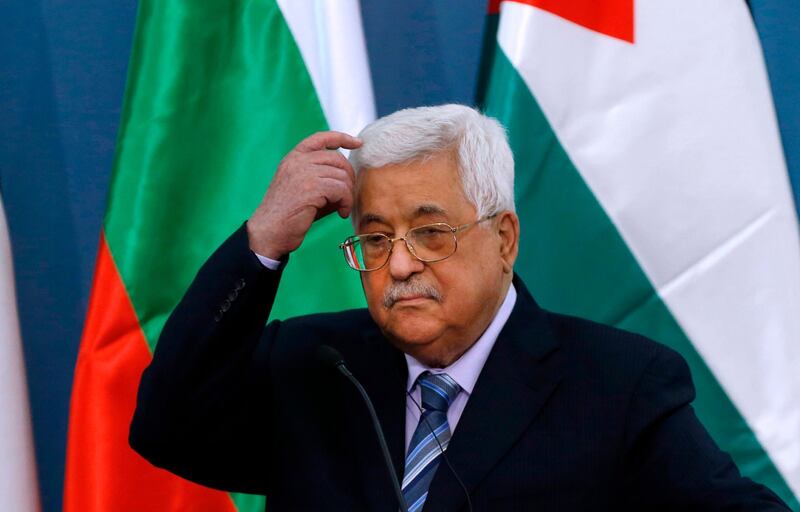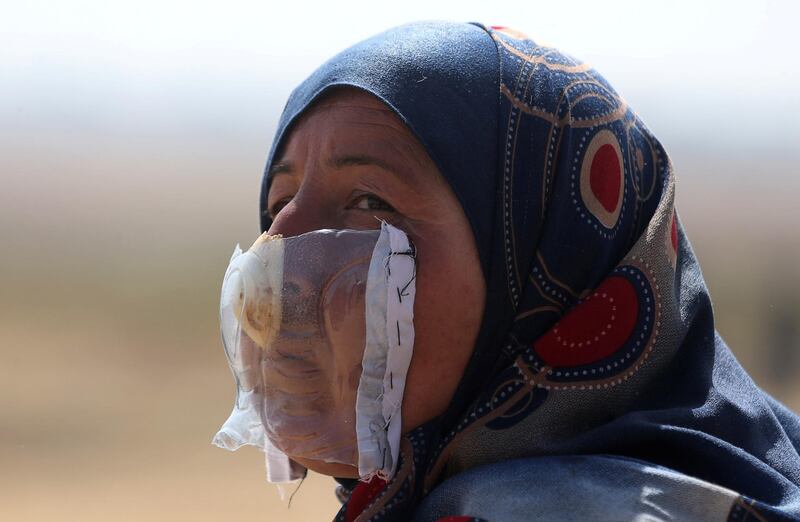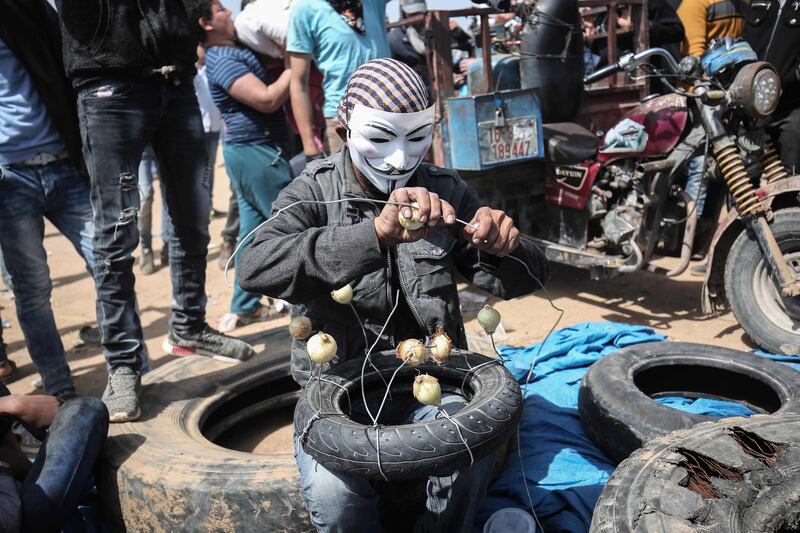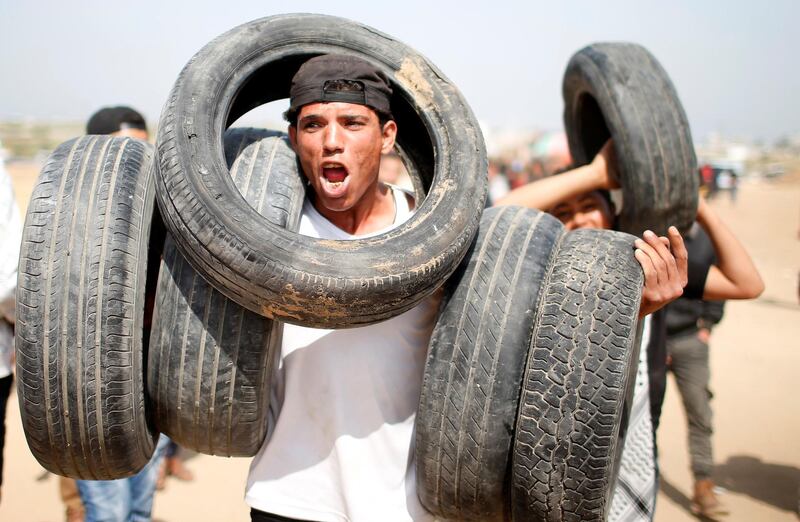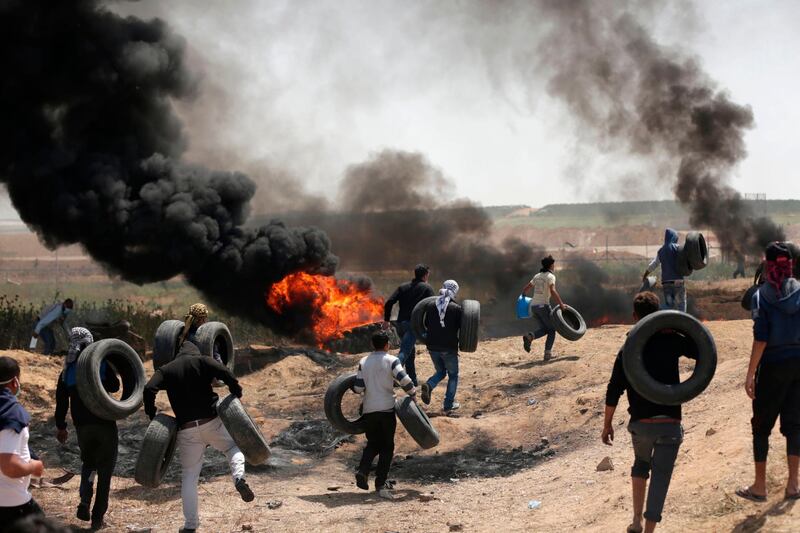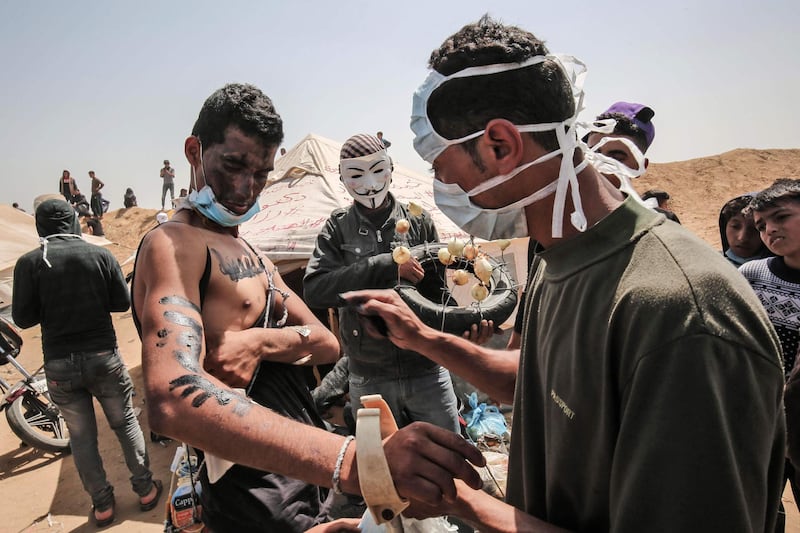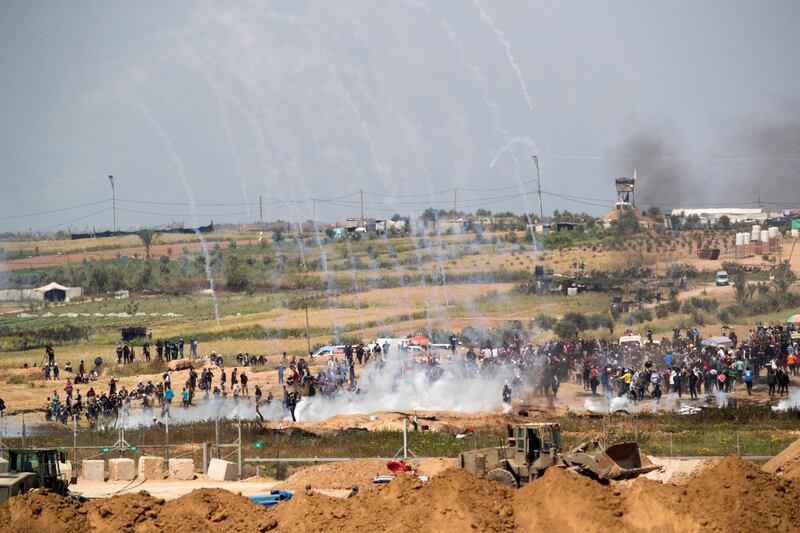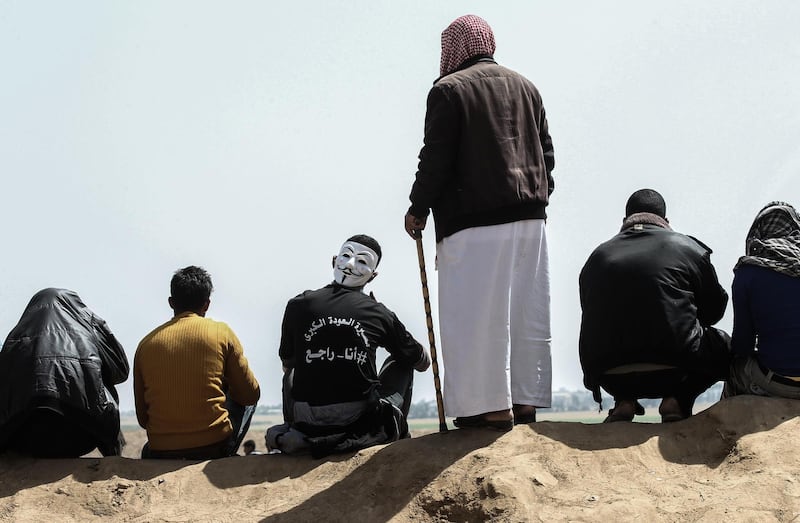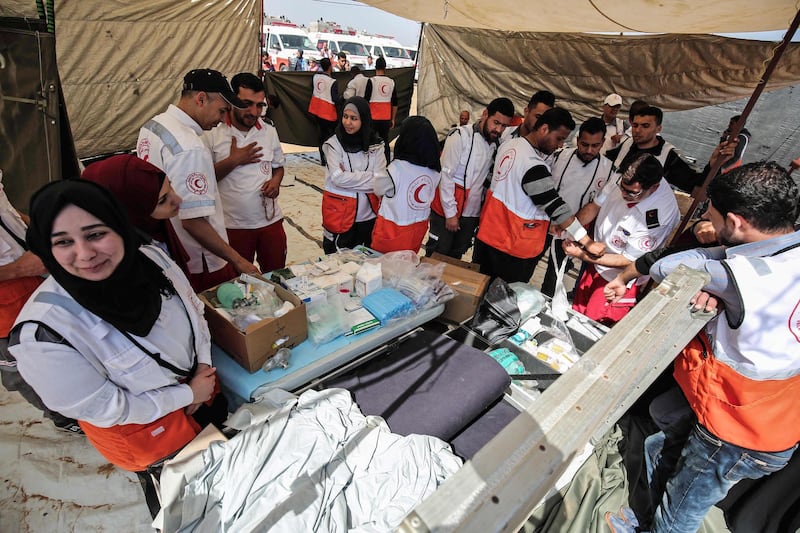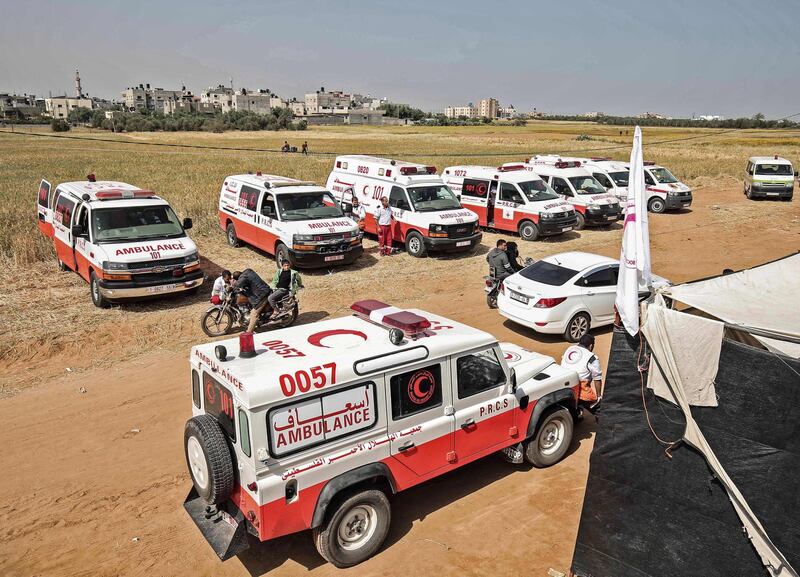Mass protests by Gazans - and Israel's lethal response - have put the Palestinian issue back on the international agenda.
But in the West Bank, the Palestinian Authority headed by president Mahmoud Abbas has refrained from embracing the cause.
In theory and in rhetoric, Mr Abbas is a supporter of unarmed popular resistance to occupation of the type the Gaza protest organisers intended at the border with Israel. He and his Fatah movement adopted such resistance as a strategy during a party congress in November 2016. In a speech to the Fatah central council in January, Mr Abbas called three times for "popular, peaceful resistance" against the occupation.
But now, after 31 deaths and increased tension, he appears afraid to encourage protests.
"He's worried things could get out of control in the West Bank," says Hani Masri, director of the Masarat think tank in Ramallah.
Mr Abbas has a history of being very conservative about confronting Israel.
______________
Israel investigates video of sniper shooting at Palestinian
______________
In late 2015 when there was a wave of stabbings and clashes, his security forces helped prevent it from developing into a third intifada.
While the Israeli army stresses it has faced stones and petrol bombs in the Gaza demonstrations, the Friday protests are based in large part on people power, with crowds of 30,000 on March 30 and 20,000 on April 6 and are a sharp departure from the firing of rockets as a means of confronting Israel.
The protests are part of what organisers call The Great March of Return to underscore the desire of refugees to head back to homes in what became Israel in 1948. They are to culminate on the May 15 anniversary of Israel's establishment, known to Palestinians as the Nakba, or catastrophe, when 700,000 fled or were expelled by Israeli forces.
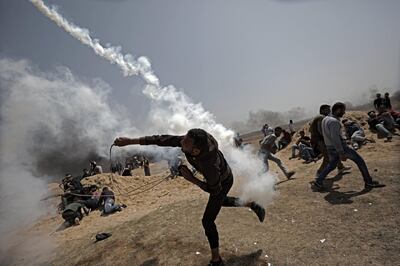
That Mr Abbas does not go beyond condemnations of the Israeli army and unsuccessful efforts to evoke UN censure, is largely because he views the Gaza protests through the prism of his power struggle with Hamas, which seized control of the Strip from Fatah in 2007.
Despite recent failed efforts at reconciliation, he has been trying to topple Hamas with economic sanctions aimed at increasing popular anger with the Islamists. These include reducing payments to Israel for electricity and the cutting of government salaries. After an assassination attempt last month in Gaza against his prime minister, Rami Hamdallah, Mr Abbas vowed more sanctions.
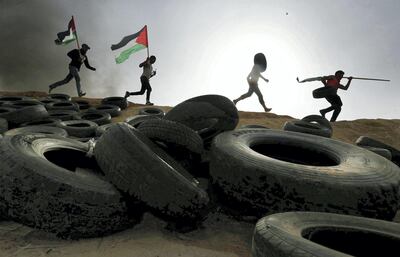
The Islamist movement quickly and cunningly embraced the idea for the protests and is now the leading force behind the weekly demonstrations.
Hamas leaders Ismail Haniye and Yihya Sinwar have visited and delivered speeches at the protest tents. Gaza's senior Fatah leader, Ahmed Hellis, has been notably absent.
"Abu Mazen (Abbas) and Fatah know that Hamas is behind the demonstrations on the border and they don't want to end up helping Hamas to divert onto Israel the internal pressure it is facing," said Mkhaimar Abusada, a political scientist at al-Azhar University in Gaza City. "Abbas doesn't want to help Hamas, he wants to keep the pressure on Hamas."
Remarkably, in public remarks at a Sunday meeting of the Fatah Central Committee, Mr Abbas did not even mention the Gaza protests, or the fatalities. Instead, he warned that if Hamas does not hand over full control of Gaza to the Palestinian Authority he will further cut the Strip's funding.
______________
Read more:
Editorial: Israel is creating a smokescreen to divert attention from its atrocities
______________
Mr Abbas's religious affairs adviser, Mahmoud Habash, went so far last week as to accuse Hamas of cynically sending people to die in the demonstrations.
"They are telling people, go Palestinian go and die so that we can issue a strong statement for the satellite stations."
Referring to Hamas, he added: "They no longer fool anyone. No one is deceived by them."
The recent protests in the West Bank have been relatively small and scattered. But Mr Abbas is wary of demonstrations that could take on a momentum of their own, analysts say.
"He is in favour of peaceful demonstrations that are controlled. He doesn't want them to be all out," said Mr Masri. "He doesn't want an open confrontation with the occupation. He wants a limited confrontation, not a broad confrontation."
Mr Abbas is also believed to be worried that Hamas, which is suppressed in the West Bank, would come back into the public eye if there were popular protests. "A non-violent struggle that gains strength would produce new legitimate leaders and could make for a completely different balance of forces in the West Bank," an observer who asked for anonymity said.
